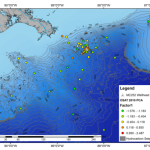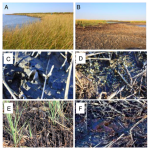BP still has to pay the government for that little slip-up that happened last year. The Clean Water Act imposes punitive damages for any act of pollution carried out in US waters, with fines proportional to the magnitude of the environmental impact. For oil spills, damages are calculated according to the amount of hydrocarbons leaked into the water column. The Macondo well hemorrhaged oil for 89 days. That’s a whole lotta fine dollaz. Damages look set to total between $5.4 and $21 billion dollars, depending government’s final estimate of oil spilled.
But Congress has to decide how that money gets spent – and thankfully, the House and Senate are trying to move quickly to pass the bill. The fine money is tentatively set to be divided amongst five areas:
- 35 percent would be divided equally among the five Gulf states for economic and ecological recovery activities along the coast.
- 30 percent would be dedicated to the development and implementation of a comprehensive restoration plan. A new Gulf Coast Restoration Council — made up of representatives from all five states — would dictate the scope of that plan.
- 30 percent would be disbursed by the council to Gulf Coast states, with the allocation dictated in part by spill impact.
- 5 percent would go to a new long-term science and fisheries endowment and to a Gulf Coast research, science and technology program.
Last October, President Barack Obama established the Gulf Coast Ecosystem Restoration Task Force to come up with a plan to not only restore ecosystems damaged by the spill but also to repair decades of past damage done by efforts to reengineer the Mississippi River and expand oil and gas drilling in gulf marshes. The task force, made up of senior federal officials and representatives from the five Gulf Coast states of Alabama, Florida, Louisiana, Mississippi, and Texas, held a series of public meetings over the past year and sought input from a wide range of scientists.
The result is a set of sweeping but relatively general recommendations aimed at bolstering both the science and the political support needed to tackle some highly complex restoration challenges. It sets out four major goals—restoring and conserving habitat, restoring water quality, replenishing and protecting living coastal and marine resources, and enhancing community resilience—along with 19 “major actions” needed to accomplish the goals.
The need for better science gets plenty of ink—including calls for more comprehensive gulf monitoring and data-collection systems. But the report also notes that “the dire state of many elements of the Gulf ecosystem cannot wait for scientific certainty and demand immediate action.” To avoid delays, the panel proposes an “adaptive management” process of “learning by doing, wherein flexibility is built into projects, and actions can be changed based on” new science and progress toward goals.






This is the good ole down south. We know most of that money ain’t going to go where its needed. Congress needs to make damn sure there are some sort of controls or oversight on its spent.
It is great that $$ will be made available for restoration and research, as it should be…But how much will be spent by offshore oil industry in changing their planning, policy and operational practices, to prevent and/or minimise, this event or similar, happening again ?
The clean water act has a lot to do with the BP oil spill in regards to compensation. It seems that congress has chosen good places to put the money to use. I hope that these sort of fines will end such carelessness. It also seems that the more aware the public is about these, the more pressure large oil companies such as BP feel to prevent such accidents. I am also glad to see President Obama taking this seriously and establishing the Gulf Coast Ecosystem Restoration Task force.